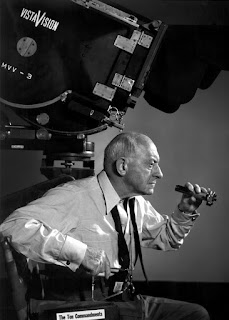- Brooklyn. Delightful little movie. I knew Saoirse Ronan was destined for greatness from the first time I saw her, in Atonement, and it looks like she's finally achieved stardom with this film.
I saw it with Vija and Lynn (not my sister; different Lynn) at the City Cinemas on the east side of Manhattan, a nice theater that I hadn't been to in years. Turns out it's gotten an upgrade: reclining seats that you can pick out yourself at the box office, just like AMC. Unlike AMC, however, they have the nerve to charge a whopping 18 BUCKS for the privilege. Yes, sports fans, 18 bucks (though they do have a half price matinee before noon). I tried to get in as a senior, but it didn't work - the clerk asked for ID! (If only I hadn't have shaved...)
 |
| replica of Ronan's outfit on display at the City Cinema |
If Brooklyn wasn't such an excellent movie, I would've regretted paying so much for it, but I'm certainly not likely to go back to City Cinemas unless it's for a $9 matinee - which is possible, I suppose. Anything for a bargain...
- Spotlight. I almost slept on this one (not literally). I remember reading about it a few weeks ago and I thought, yeah, I'll check this one out, but it came out sooner than I had realized, so by the time I was reminded of it, I was afraid it would leave the theaters. Not likely; it's gotten great reviews and will probably be an Oscar contender - and rightly so. I remember when the news about Catholic priests molesting children first became a hot topic, but I wasn't aware how the story broke. This movie tells that story, and it's done very well. It doesn't let the Boston Globe reporters off the hook for failing to pursue the story further the first time around, but it goes to great lengths to show them doggedly chasing the facts, as they realize this is a bigger story than they initially realized. Riveting material.
* * *
That's it for 2015! Before I ride off into the sunset, I gotta send out some thank you's: thanks to Danny from Pre-Code.com and Fritzi from Movies Silently for their help with the banners; Maria Ramos for her Ray Bradbury piece; Jacqueline for giving me such a great interview - check out the blog devoted to her book Ann Blyth: Actress Singer Star, where she has additional Ann Blyth material, plus news on signings and appearances, all that good stuff; thanks to ClassicBecky for being my partner in crime for the CinemaScope Blogathon; Le for letting me put her in my Black Orpheus post, and also for recommending The Given Word (excellent movie); Paddy for her Liebster Award, for all her recommendations, all her retweets, and for being such a good friend... and thanks to you for reading.
I'll return on Wednesday, January 6, 2016 with The One Year Switch Postgame Show before we return to the original format of old and new movies. Happy new year!











































